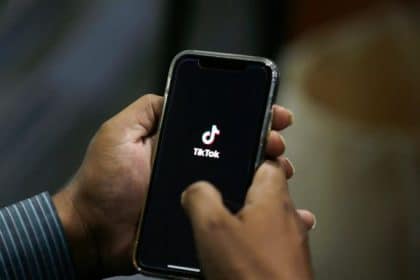Eli Lilly Obesity Drug Appears to Ease Sleep Apnea Symptoms in Trials

WASHINGTON — A pair of yearlong clinical trials conducted by the drug maker Eli Lilly appear to show that its obesity drug, Zepbound, can provide considerable relief to overweight people who have sleep apnea.
Though the findings have yet to be published in a peer-reviewed medical journal, if they ultimately prove true, it could be a new treatment option for the more than 20 million Americans who have been diagnosed with moderate to severe obstructive sleep apnea — a condition defined by episodes of halted breathing during sleep.
In addition to increased tiredness, people with sleep apnea face an increased risk for high blood pressure, diabetes, heart disease, strokes and early onset dementia.
On Thursday, Eli Lilly posted a summary of the trial results on its website, but Dr. Daniel Skovronksy, its chief scientific officer, said more detailed results will be released in June, when the company presents its findings at the American Diabetes Association 84th Scientific Sessions in Orlando, Florida.
According to Eli Lilly, Zepbound, also known as tirzepatide, significantly reduced the apnea-hypopnea index compared to placebo, achieving the primary endpoints.
Percentage change in AHI was a key secondary endpoint in both studies.
AHI records the number of times a person’s breathing shows a restricted or complete block of airflow per hour of sleep and is used to evaluate the severity of obstructive sleep apnea and the effectiveness of treatment outcomes.
The first trial evaluated tirzepatide in adults with moderate to severe obstructive sleep apnea and obesity who were not on positive airway pressure therapy for 52 weeks. By the end of the trial, tirzepatide led to a mean AHI reduction from baseline of 27.4 events per hour compared to a mean AHI reduction from baseline of 4.8 events per hour for placebo.
In key secondary outcomes, tirzepatide led to a mean AHI reduction from baseline of 55% compared to 5% from baseline for placebo; tirzepatide also led to a mean body weight reduction of 18.1% from baseline, compared to 1.3% from baseline for placebo.
The second trial evaluated tirzepatide in adults with moderate to severe obstructive sleep apnea and obesity who were on and planned to continue to use PAP therapy for 52 weeks.
At the end of the trial, tirzepatide led to a mean AHI reduction from baseline of 30.4 events per hour compared to a mean AHI reduction from baseline of 6 events per hour for placebo.
In key secondary outcomes, tirzepatide led to a mean AHI reduction from baseline of 62.8% compared to 6.4% from baseline for placebo; tirzepatide also led to a mean body weight reduction of 20.1% from baseline, compared to 2.3% from baseline for placebo.
“Obstructive sleep apnea impacts 80 million adults in the U.S., with more than 20 million living with moderate to severe OSA. However, 85% of OSA cases go undiagnosed and therefore untreated,” said Jeff Emmick, M.D., Ph.D., senior vice president, product development, at Eli Lilly. “Addressing this unmet need head-on is critical, and while there are pharmaceutical treatments for the excessive sleepiness associated with OSA, tirzepatide has the potential to be the first pharmaceutical treatment for the underlying disease.”
Zepbound is an injectable prescription medicine that may help adults with obesity, or with excess weight who also have weight-related medical problems, lose weight and keep it off. It should be used with a reduced-calorie diet and increased physical activity.
Eli Lilly warns that Zepbound may cause tumors in the thyroid, including thyroid cancer. Other serious side effects include severe stomach problems, kidney problems, gallbladder issues and inflammation of the pancreas.
Dan can be reached at [email protected] and @DanMcCue

























